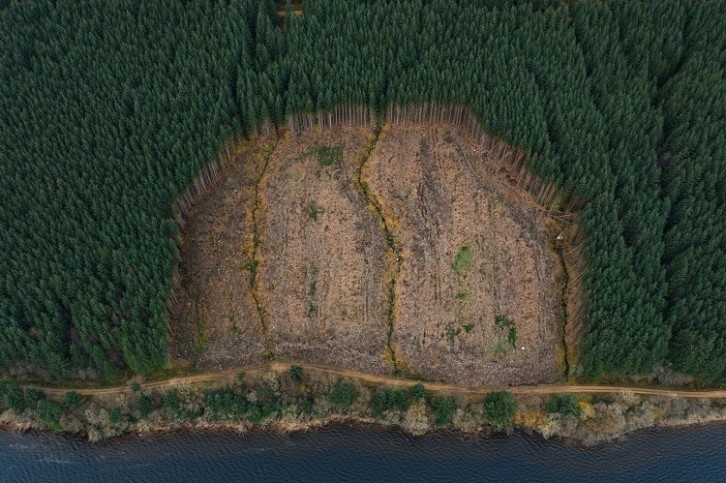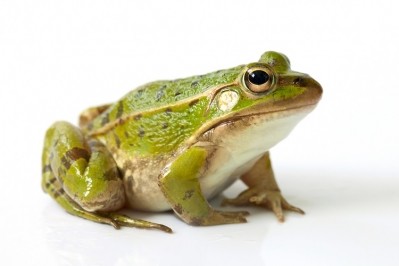EUDR watch: Discover the latest developments in this groundbreaking legislation

The 30 December deadline, for implementation of the European Deforestation Regulation (EUDR), looms large on the horizon and in the minds of suppliers and manufacturers of the seven affected commodities.
From that day onwards, all beef, soy, cocoa, coffee, rubber, palm oil and wood products, imported into the European Union (EU), must be sourced from sustainable sources. Furthermore, suppliers and manufacturers must obtain certification to ensure the origin of the commodity and prove compliance.
However, while many support the new law and its aim to cut deforestation, the EU has also seen huge opposition from suppliers, manufacturers and even governments. Why? The scale of the task and lack of support.
We look at all the ways EUDR is impacting the food and beverage industry as the deadline approaches. And we even ask the question, will the EU delay EUDR?
Here’s the latest…
27 August 2024: What EUDR preparations or pauses are underway?
As the EUDR deadline gets closer, here’s how the globe is responding
Brussels, do we have a problem with the EUDR? That’s the question Confectionery News posed back in May as the bloc’s director general for Trade called it “extremely burdensome”. It seemed the director’s comments were not a one-time expression of doubt either, as they came mere months after European Union (EU) Commission Policy Officer Zoe Druilhe said there was no ‘plan b’.
18 July 2024: Is dairy linked to deforestation?
Deforestation has been linked to a range of commodities including palm oil, soy, cocoa and cattle. But how close is its link with dairy?
The need to feed livestock drives deforestation. Crops such as soy, which are grown to feed cattle, use large chunks of agricultural land that has been converted from forest.
But why do we need to feed livestock in the first place? The largest reason is meat, the consumption of which will grow significantly as global populations rise.
17 July 2024: Which crops are least prepared for the EUDR deadline?
With the EUDR deadline fast approaching, which crop is the most likely to comply? And conversely, which are predicted to cause the biggest regulatory headaches?
In less than five months’ time, the European Deforestation Regulation (EUDR) will be enforced. That means that as of 30 December, business operators will be required to prove products containing specific commodities are deforestation-free.
They’ll also need to prove that those products – whether containing palm oil, cocoa, coffee, soy, beef, rubber, and/or wood – were grown legally according to the land of production.
Time is running out, and some food crop sectors are in a better place than others. Wood, rubber, and beef aside, which commodity is the most – and least – prepped for EUDR?
15 July 2024: How manufacturers can source soy sustainably: The EUDR and beyond
Soy is under the spotlight due to the approaching enforcement of the EUDR. But how can soy manufacturers ensure that they’re sourcing sustainably?
Soy is a commodity which means different things to different people, due to its range of different uses.
On the one hand, soy is one of the most prominent and widely used commodities linked to deforestation, mostly due to the large amounts of soy grown for animal feed. According to the World Resources Institute, 8.2 million hectares of deforestation were linked to soy between 2001 and 2015. Soy is, therefore, one of the commodities covered by the European Union Deforestation Regulation (EUDR), which comes into force on 30 December this year. However, production is still expanding, driving down commodity prices in a time when many other commodities are getting more expensive.
On the other hand, soy for humans is a key source of plant-based protein. While a mere 6% of soy, according to Our World in Data, is used directly for human food, this soy has a high protein content and can be used in a variety of vegetarian and vegan products, from tempeh and tofu to plant-based meat.
In other words, soy is both linked to one of the key environmental problems driven by the meat industry – deforestation – and part of the solution.
10 July 2024: Should maize be included in EUDR?
The EUDR deadline is now less than five months away. But as the 30 December date looms on the horizon, we wonder if there are commodities missing from the list, in particular, maize.
Much has been said of EUDR, the EU’s deforestation regulation, due to come into force on 30 December 2024. But while most of the focus has been on suppliers and manufacturers’ ability to meet the deadline, there has been little discussion on whether EUDR goes far enough to help prevent deforestation. We look at one commodity in particular, maize, to see if it should be part of EUDR and if it might be included at a later date.
The majority of imported maize, consumed within the European Union (EU), originates from Brazil. Or more specifically, deforested lands in Brazil, and import volumes are rising.
In fact, according to figures from the European Commission, maize imports have increased by 259% (448 thousand tonne increase), since January 2022.
So, should maize be included in EUDR, and will it or any other high-risk commodities be included at a later date?
21 June 2024: White House urges delay of EUDR
The Biden administration has urged the EU to delay the implementation of the EU Deforestation Regulation (EUDR) until its "substantial challenges" are addressed.
As first reported by the Financial Times, a letter dated May 30 and sent to the EU Commission from US trade representative, Katherine Tai, US commerce secretary, Gina Raimondo, and US agriculture secretary, Thomas Vilsack, calls for the postponement of the EUDR as US exporters are struggling to be ready on time.
This request follows a letter to Tai from 50 US senators in March this year demanding that the USTR address the potential impact of the EU deforestation law on US paper and pulp producers.
11 June 2024: Just how ready is the cocoa sector for EUDR?
Despite a deadline that is still seven months away, the incoming EU Deforestation Regulation (EUDR) is already driving efforts on the traceability of cocoa supplies. Conversely, the same study found a distinct lack of progress on other critical issues within the sector.
The Retailer Cocoa Collaboration (RCC) – a coalition of 11 of the leading retailers in the UK and EU, including Tesco, Sainsbury’s, Carrefour and Lidl – has published it latest trader assessment, which has revealed a positive shift towards the traceability of supplies.
The bittersweet report, however, also revealed the disappointing progress in tackling poverty and child labor within the sector.
The report is based on a questionnaire sent to nine global cocoa traders in the RCC Member supply chain to assess their performance in 2023 against a range of social and environmental metrics. Only seven responded, however, the two non-responders were assessed based on publicly available information and data supplied in previous years.
29 April 2024: EUDR: 7 lesser-known ways food operators could be impacted
As food and beverage operators scramble to comply with the EU’s new deforestation law, we round up seven of the lesser-known ways industry could be impacted.
The European Deforestation Regulation (EUDR) is coming into force in just a few months. From 30 December 2024, business operators in the EU will be required, by law, to prove products containing specific commodities are deforestation-free.
These include soy, beef, palm oil, wood, coffee, cocoa and rubber.
The new law is elaborate, and industry is still getting to grips with its complexities. But time is running out. For those concerned about compliance, we’ve rounded up some of the lesser-known ways the incoming regulation could impact food and drink operators and their supply chains.
9 April 2024: Deforestation unrest: EU policy implementation hangs in the balance after industry pushback
The European Union Deforestation Regulation (EUDR) is facing major pushback from ministers and trade organisations within Europe, alongside continued pressure from palm oil producer nations in Asia, casting doubt on hopes for a smooth implementation.
The EUDR has long been facing major opposition and protests from producer nations of commodities such as palm oil and cocoa.
And now EU Commission (EC) is facing mounting challenges from within Europe itself.
On March 28 this year, an industry-wide cross-commodity letter was addressed to EC President of the Council for Environment and Minister for the Climate, the Environment, Sustainable Development and the Green Deal of Belgium Zakia Khattabi, calling for ‘urgent clarifications and workable solutions’ on EUDR implementation.
21 March 2024: Palm oil: Report reveals split supply chain strategy to address EUDR
Importers of palm oil and its derivatives, such as palm kernel oil and meal, are devising strategies to comply with the EU Deforestation Regulation (EUDR) in the short term.
According to a report by the Palm Oil Transparency Coalition (POTC), which comprises businesses collaborating to eliminate deforestation and exploitation from the palm oil production sector, importers are planning to split their supply chains. Palm materials that cannot be fully traced back to their origin will be directed to regions outside the EU.
The publication outlines how smallholders are likely to face disadvantages and exclusion from EU supply chains as a result due to the challenges in tracing palm volumes back to individual plantations.
19 March 2024: Will EU delay EUDR deadline?
Rumours are rife that the EU is planning to delay the EUDR deadline past 30 December 2024. But is this true, and if not, are suppliers and manufacturers ready?
With just nine months to go before the European Deforestation Regulation (EUDR) deadline comes into force, food and drinks suppliers and manufacturers are working to ensure they comply, in order to guarantee uninterrupted operations into 2025 and beyond.
However, the EU has come under pressure in recent weeks to address rumours that it is planning to delay the implementation of EUDR, which is currently due to take effect on 30 December 2024.
The rumours appear to have started after a number of countries, which currently supply the EU, began voicing concerns about their ability to meet the regulation deadline and the money it will cost to enforce the changes.
22 January 2024: The race to meet the EUDR deadline is intensifying, so what help is available?
December 30, 2024 marks the day by which supply chain stakeholders, including producers, importers, manufacturers, brands, and retailers within the European Union must ensure they are selling, importing and exporting EUDR compliant cocoa, coffee, palm oil and beef.
Simply put, EUDR (EU Regulation on Deforestation) is an EU directive ensuring that all products on the EU market, and crossing into and out of the European Union, comply with EU deforestation regulation.
This regulation dictates that products containing any of the seven deforestation-risk commodities, including coffee, cocoa, palm oil and beef, must prove they do not originate from land deforested after 31 December 2020.
Companies must obtain certification to ensure their products comply with the regulation.













